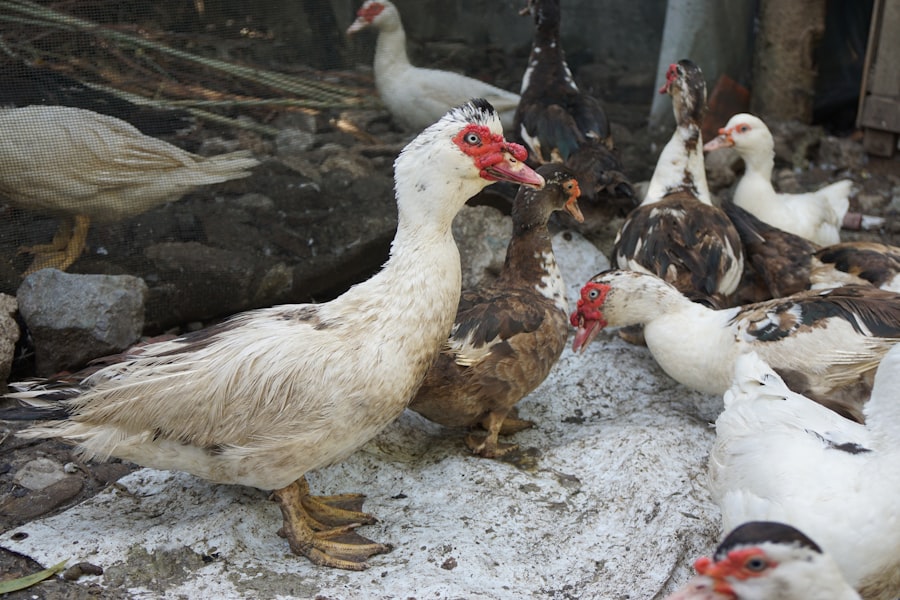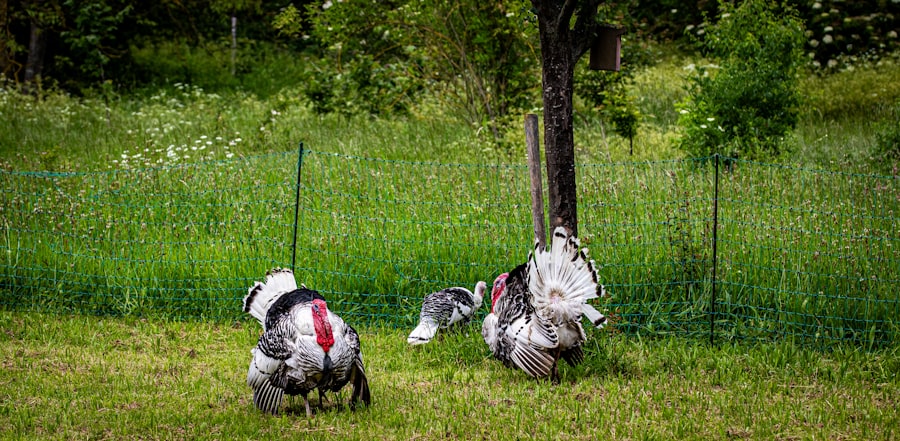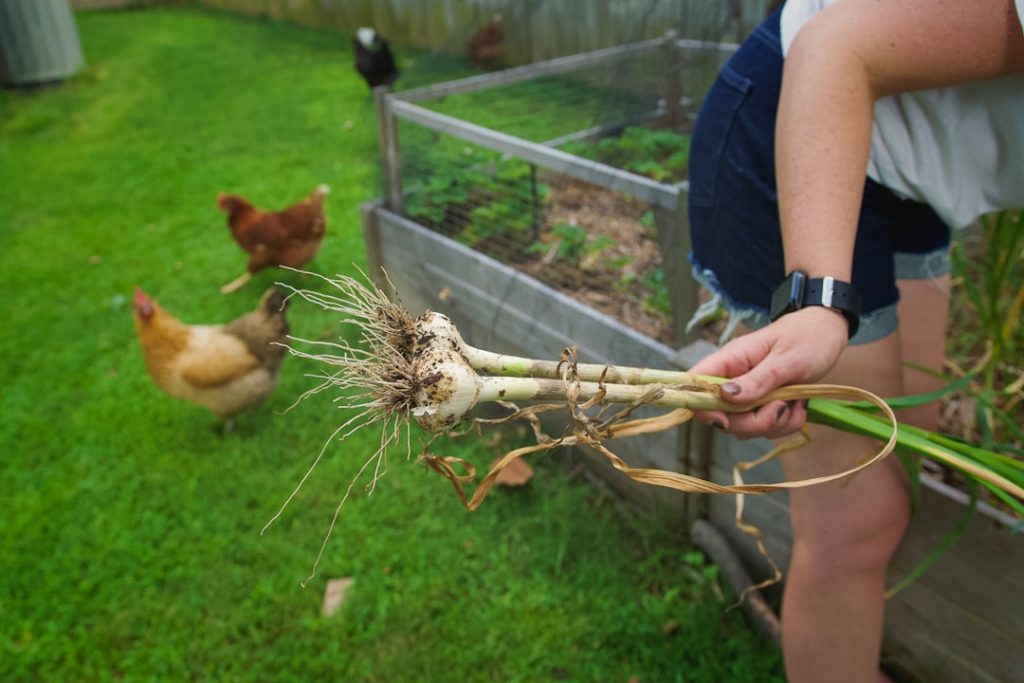Chicken keeping has gained popularity as a hobby in both rural and urban settings. These birds offer multiple benefits, including fresh eggs, natural pest control, and garden fertilization. They can also serve as pets and contribute to a sense of self-reliance.
However, prospective chicken keepers should be aware of local zoning laws, regulations, health and safety considerations, noise concerns, and permit requirements before starting. Various chicken breeds exist, each with distinct traits and egg production capabilities. Common backyard breeds include Rhode Island Red, Plymouth Rock, and Leghorn.
When planning to keep chickens, it is crucial to consider space requirements for the coop and run, as well as the time and effort needed for proper care. Chickens require a secure coop for protection against predators and weather, along with a spacious run for exercise. Regular feeding, watering, and cleaning are essential for maintaining their health and well-being.
While chicken keeping can be a fulfilling experience, thorough research and preparation are necessary before beginning.
Table of Contents
- 1 Local Zoning Laws and Regulations
- 2 Health and Safety Considerations
- 3 Noise and Nuisance Concerns
- 4 Permit and Licensing Requirements
- 5 Benefits of Keeping Chickens
- 6 Conclusion and Resources for Further Information
- 7 FAQs
- 7.1 What are the legal considerations for keeping chickens?
- 7.2 Where can I find information about the regulations for keeping chickens in my area?
- 7.3 Are there any restrictions on keeping chickens in residential areas?
- 7.4 What are some common regulations for keeping chickens?
- 7.5 What are the potential consequences of keeping chickens in violation of local regulations?
Key Takeaways
- Keeping chickens can be a rewarding and sustainable hobby for many people.
- Local zoning laws and regulations should be carefully researched and followed before starting a chicken coop.
- Health and safety considerations, such as proper sanitation and disease prevention, are important for keeping chickens.
- Noise and nuisance concerns from neighbors should be taken into account when keeping chickens in a residential area.
- Permit and licensing requirements may be necessary depending on the location and number of chickens being kept.
- Benefits of keeping chickens include fresh eggs, natural pest control, and fertilizer for gardens.
- In conclusion, it’s important to research and follow local regulations when keeping chickens, and there are many resources available for further information on this topic.
Local Zoning Laws and Regulations
Understanding Zoning Laws and Regulations
Zoning laws can vary significantly from one municipality to another, and some areas may have strict regulations regarding the keeping of livestock, including chickens. These regulations may dictate the number of chickens allowed, the distance of the coop from property lines or neighboring homes, and other specific requirements for chicken keeping.
It’s important to check with the local zoning department or city hall to obtain a copy of the zoning ordinances that pertain to keeping chickens. In some areas, there may be specific zoning districts where chicken keeping is permitted, while in others, it may be prohibited altogether. Some municipalities may require a special permit or license for keeping chickens, while others may have specific guidelines for coop construction and maintenance.
Compliance and Consequences
It’s essential to thoroughly understand these regulations before investing in chickens and their housing. Failure to comply with local zoning laws can result in fines or even the forced removal of the chickens. Therefore, it’s crucial to do thorough research and possibly even seek legal advice to ensure compliance with local regulations.
Health and Safety Considerations

When keeping chickens, it’s important to prioritize their health and safety. Chickens are susceptible to various diseases and parasites, so it’s essential to provide them with a clean and secure living environment. Regular cleaning of the coop and run is necessary to prevent the buildup of bacteria and parasites that can harm the chickens.
Additionally, providing a balanced diet, fresh water, and proper ventilation are essential for maintaining their health. It’s also important to consider the safety of the chickens from predators such as raccoons, foxes, and birds of prey. A secure coop with sturdy fencing is necessary to protect the chickens from these threats.
Furthermore, providing adequate shelter from extreme weather conditions is crucial for their well-being. In addition to physical safety, it’s important to monitor the chickens for signs of illness or injury and seek veterinary care when necessary.
Noise and Nuisance Concerns
One common concern associated with keeping chickens is the potential for noise and nuisance issues. Roosters are known for their loud crowing, which can be disruptive to neighbors, especially in urban or suburban areas. Some municipalities have specific regulations regarding roosters due to noise concerns.
In many cases, keeping roosters may be prohibited altogether, while others may have restrictions on the number of roosters allowed per property. In addition to noise concerns, there may be nuisance issues related to odors and waste management. Proper waste management is essential to prevent unpleasant odors and potential health hazards.
Regular cleaning of the coop and run, as well as proper disposal of chicken waste, can help mitigate these concerns. Additionally, maintaining a good relationship with neighbors by addressing any potential issues proactively can help prevent conflicts related to noise and nuisance concerns.
Permit and Licensing Requirements
In some areas, obtaining a permit or license may be required for keeping chickens. These permits may have specific requirements regarding coop construction, distance from property lines or neighboring homes, and the number of chickens allowed. It’s important to research the specific permit and licensing requirements in your area before getting started with chicken keeping.
Failure to obtain the necessary permits or licenses can result in fines or other legal consequences. Therefore, it’s essential to thoroughly understand the requirements and ensure compliance before bringing chickens onto your property. In some cases, obtaining a permit may involve submitting detailed plans for the coop and run, as well as undergoing inspections by local authorities.
Benefits of Keeping Chickens

Fresh and Sustainable Food Source
One of the most significant benefits of keeping chickens is having a sustainable source of fresh eggs. Homegrown eggs are often considered superior in taste and quality compared to store-bought eggs.
Self-Sufficiency and Pest Control
Raising chickens allows individuals to have more control over the quality of their food and can contribute to a more self-sufficient lifestyle. Chickens also provide natural pest control by eating insects and other pests in the garden. Their waste can be used as fertilizer for gardens, contributing to sustainable gardening practices.
Companionship and Educational Value
Many people find joy in caring for chickens as pets and enjoy observing their unique behaviors and personalities. In addition to these practical benefits, keeping chickens can also be a valuable educational experience for children and adults alike. Learning about animal care, biology, and sustainability through chicken keeping can be an enriching experience for individuals and families.
Conclusion and Resources for Further Information
In conclusion, keeping chickens can be a rewarding and fulfilling hobby that provides numerous benefits. However, it’s essential to thoroughly research and understand the local zoning laws and regulations, health and safety considerations, noise and nuisance concerns, as well as permit and licensing requirements before getting started with chicken keeping. For further information on keeping chickens, there are numerous resources available online and in print.
Websites such as BackyardChickens.com and TheHappyChickenCoop.com provide a wealth of information on all aspects of chicken keeping, including breed selection, coop construction, health care, and more. Additionally, books such as “Storey’s Guide to Raising Chickens” by Gail Damerow and “The Chicken Health Handbook” by Gail Damerow are valuable resources for both novice and experienced chicken keepers. By being well-informed and prepared, individuals can enjoy the many benefits of keeping chickens while minimizing potential challenges and conflicts.
With proper planning and care, chicken keeping can be a fulfilling and sustainable addition to any home or homestead.
If you’re considering keeping chickens, you may also be interested in learning about the incubation period for goose eggs. Poultry Wizard has a helpful article on this topic, which you can read here. Understanding the process of hatching goose eggs can be an important aspect of poultry farming for some individuals.
FAQs
What are the legal considerations for keeping chickens?
In many areas, there are local ordinances and regulations that dictate whether or not you can keep chickens on your property. These regulations may cover issues such as the number of chickens allowed, coop requirements, and distance from neighboring properties.
Where can I find information about the regulations for keeping chickens in my area?
You can typically find information about local regulations for keeping chickens by contacting your city or county government offices. Many municipalities have specific ordinances related to keeping chickens, and it’s important to be aware of these regulations before starting a chicken-keeping venture.
Are there any restrictions on keeping chickens in residential areas?
Yes, many residential areas have restrictions on keeping chickens, including limits on the number of chickens allowed, coop requirements, and distance from neighboring properties. It’s important to check with your local government to understand the specific regulations in your area.
What are some common regulations for keeping chickens?
Common regulations for keeping chickens may include limits on the number of chickens allowed, requirements for coop size and construction, and restrictions on where coops can be located on the property. Some areas may also have rules about noise and odor control related to keeping chickens.
What are the potential consequences of keeping chickens in violation of local regulations?
If you keep chickens in violation of local regulations, you may face fines, citations, or other legal consequences. It’s important to understand and comply with the regulations in your area to avoid potential legal issues related to keeping chickens.
Meet Walter, the feathered-friend fanatic of Florida! Nestled in the sunshine state, Walter struts through life with his feathered companions, clucking his way to happiness. With a coop that’s fancier than a five-star hotel, he’s the Don Juan of the chicken world. When he’s not teaching his hens to do the cha-cha, you’ll find him in a heated debate with his prized rooster, Sir Clucks-a-Lot. Walter’s poultry passion is no yolk; he’s the sunny-side-up guy you never knew you needed in your flock of friends!







